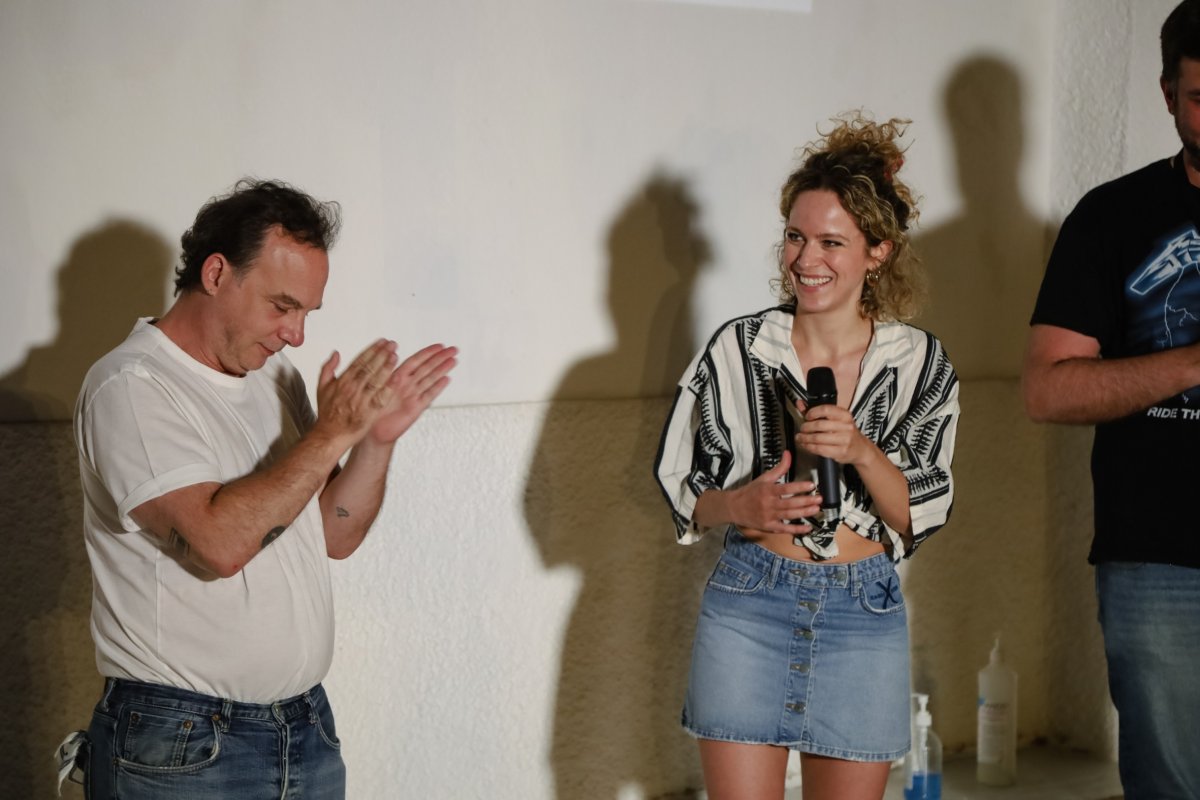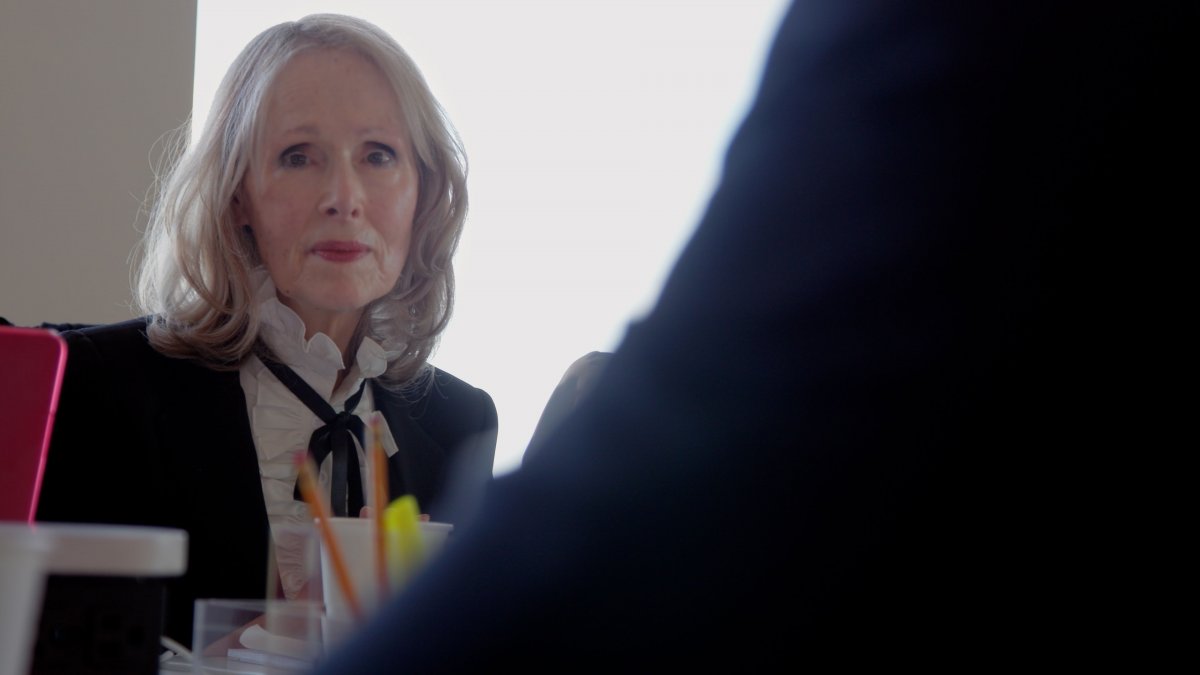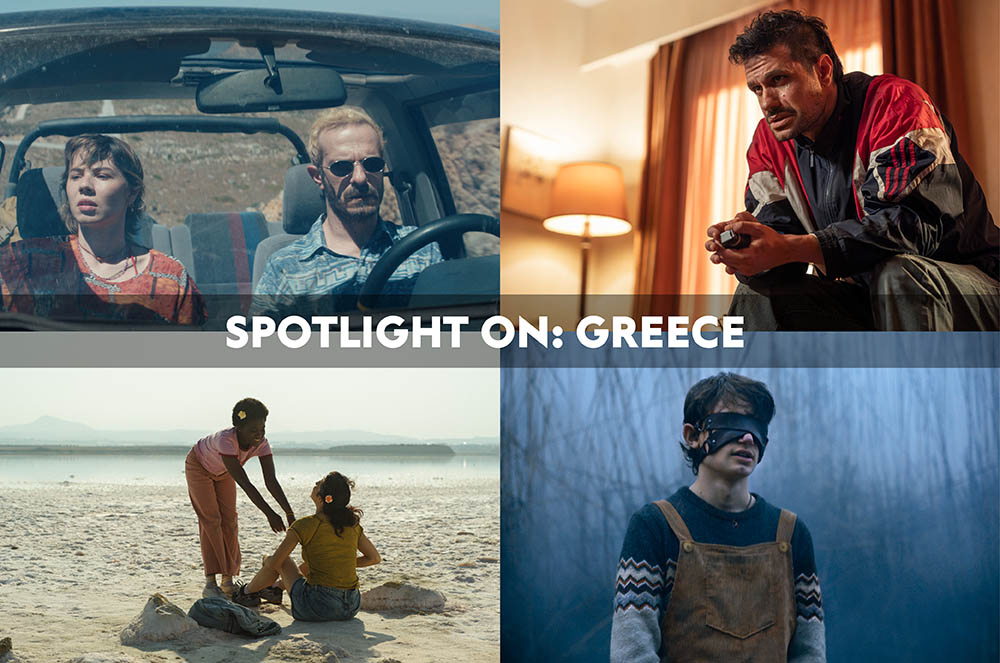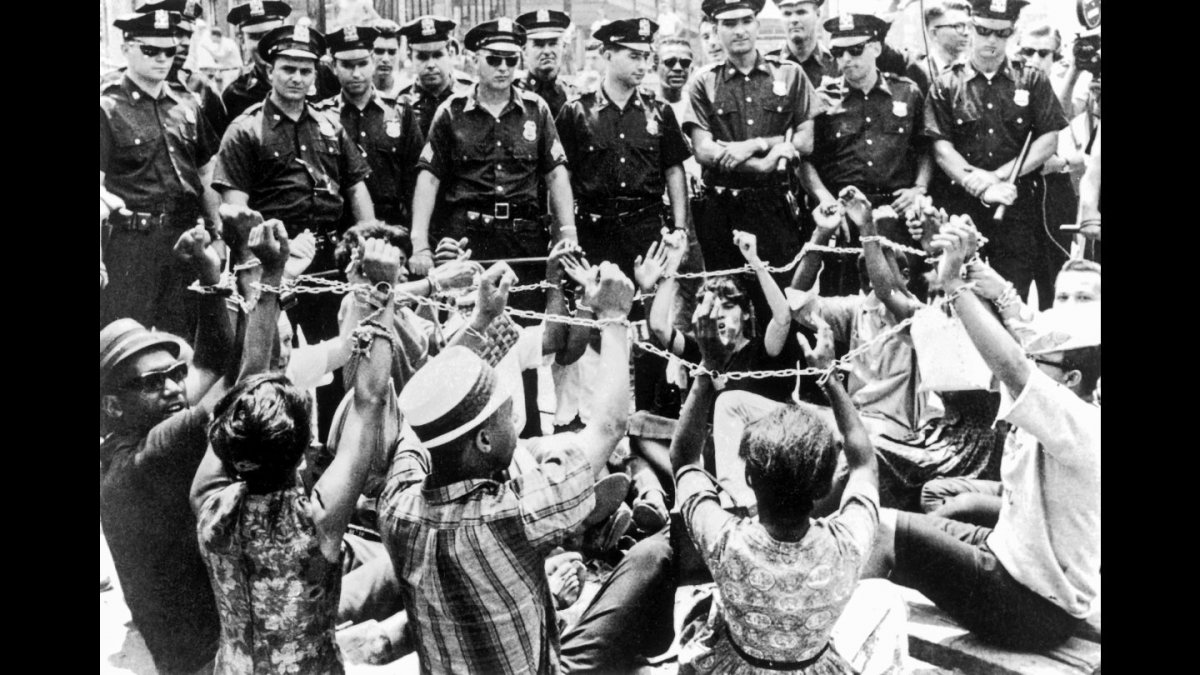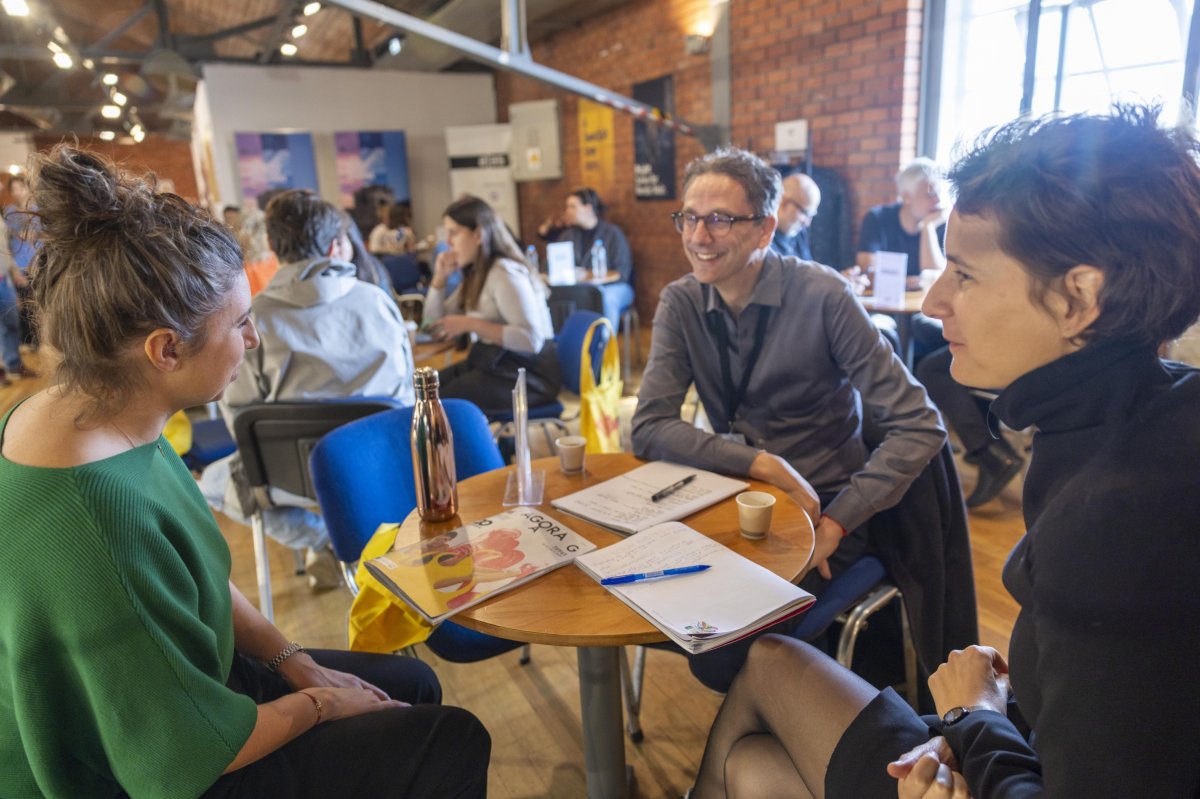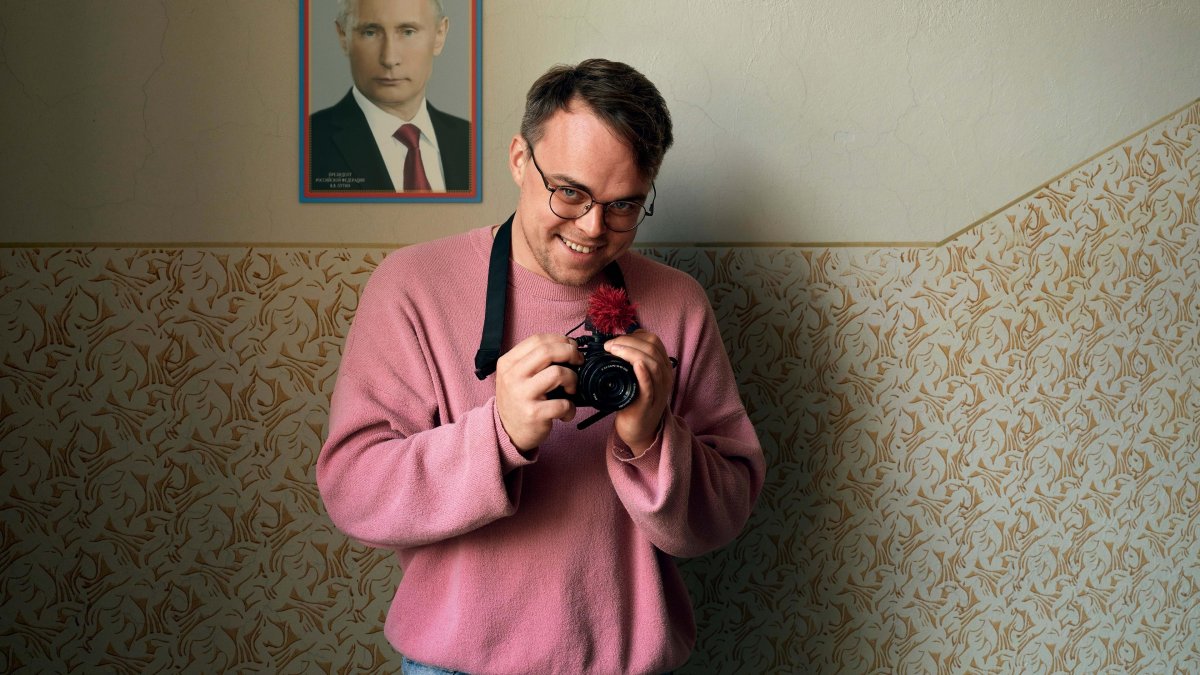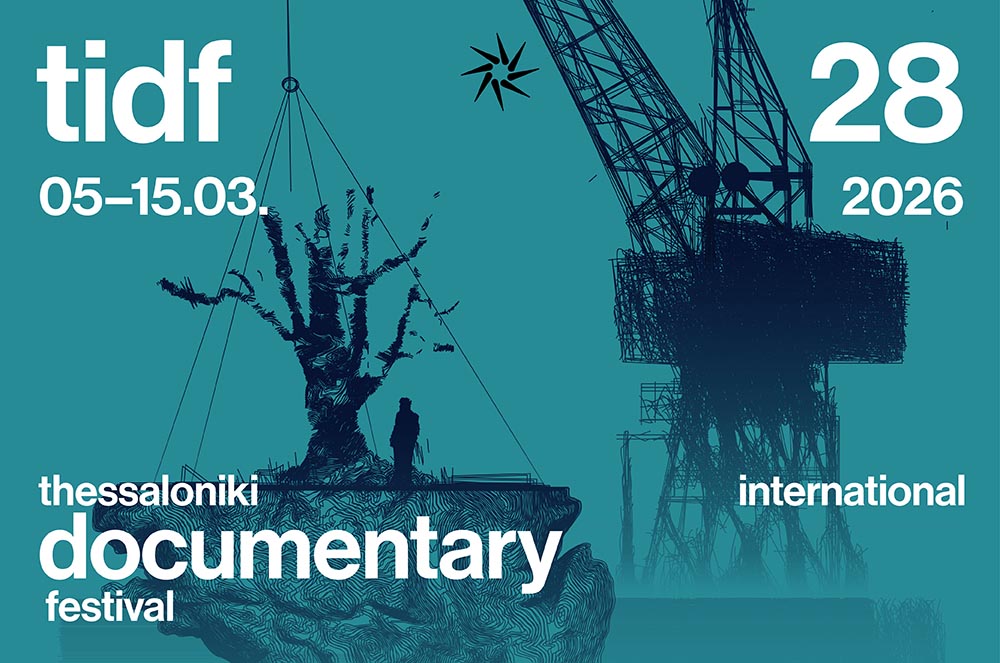The 4th Evia Film Project, Thessaloniki Film Festival’s green initiative, went on with full force on Thursday, June 19th, featuring screenings, workshops for both children and film industry professionals, as well as activities and events organized by the Agora. Beloved actress Maria Kallimani, with an outstanding career in cinema, theater, and television, delivered a masterclass in Agia Anna, under the title “Α cinematic journey in front of the camera.” The masterclass took place within the framework of the Evia Film Project’s established specialized workshop, tailor-made for students from the Department of Digital Arts & Cinema of the National & Kapodistrian University of Athens, based in Psachna Evia.
During the masterclass, Maria Kallimani laid down the specificities of acting in the field of cinema. Having starred in landmark films by some of the leading figures of contemporary Greek cinema (The Eternal Return of Antonis Paraskevas by Elina Psykou; Homeland by Syllas Tzoumerkas, Knifer and Stratos by Yannis Economides; and At Home, by Thanasis Karanikolas), the distinguished actress pointed out similarities and differences between acting for a theater play and a film, while describing the role of the actor when coming in contact with the directorial vision, taking into account the overall creative process of a film; from the script and rehearsals to the shooting stage. Ms. Kallimani noted “I have been fortunate to work with some very notable film directors both from the older generation, such as Tassos Boulmetis and Sotiris Goritsas, as well as from the new wave, such as Elina Psykou, Yannis Economides, Argyris Papadimitropoulos, or Dimitris Nakos.”
On how she selects the roles she portrays, the beloved actress remarked: “When I read a script, beyond considering if I like the role, the important thing for me is to read a story, to see if I like the world crafted by the creator, if I find the story convincing and captivating.” Referring to the collaboration with a director, she stressed that the conversations between the two of them are of great significance to her: “The rehearsals, the improvisations, the collaboration, the give and take, a director must be open to everything.”
Discussing how she constructs her roles, Ms. Kallimani said: “It helps me a lot to delve as far back into the character’s background as possible: how they have been brought up, how their relationships are with others. Because everything about a character exists in relation to others – you are never acting on your own. A scene is always action and reaction.” Immediately afterwards, she added: “Personally, an additional adjective isn’t helpful to me when acting: for example, when they tell me this character is cynical. On the contrary, it can confuse me, make me go down the wrong path.” Next, she stated that “in a well-written script, you will manage to understand the character you play scene by scene, as they gradually unfold; not from the get go. Something that isn’t yet evident in one scene can be unearthed in the next one. In every scene you enter, what has preceded it (be it in the story, or in the character) is very important, along with what you carry with you.”
On preparing for a film, she disclosed she prefers to work at home alone, to read the script over and over again. “A very important element for me is rehearsing with the other actors on set prior to the filming. Because that is when you connect with the here and now. This connection with the people you collaborate with in that specific space, as well as the sets, the objects placed there, I consider those to be a great help for an actor or actress. On the set, surrounded by props (a chair, or a cup), you can imagine an entire life for the character you are portraying,” she noted.
Later on, Maria Kallimani added: “In cinema, you have to seize the moment, capture and find the truth within the shots. This requires availability, a kind of courage from us, the actors, as well as focus. Fear has no place, you shouldn’t be afraid to admit ‘I got lost in this scene.’”
Following Maria Kallimani’s masterclass, the program continued for the students with a series of screenings of selected short films that engage in dialogue with this year’s thematic core, the Greek summer.
Moreover, L’éclairage revient / Waves of Light (2025) by Pantelis Kalogerakis, Michalis Kalogerakis, Panos Andrianos (2025) was showcased in a special screening. Five landmark PPC's steam-electric power plants come alive through music and visuals, within the framework of the 'Waves of Light' online festival, carried out by the Greek National Opera in collaboration with the Public Power Corporation, under the artistic curation of Yorgos Koumendakis. Five artistic teams create site-specific video performances, drawing inspiration for the music and the script from the spaces, the history, and the people who worked there. The first video, titled L'éclairage revient (The Light Returns), was filmed at the Steam-Electric Power Plant of Aliveri. The artists behind it drew inspiration from notes and journals found at the plant, crafting a soundscape where Arthur Rimbaud's poetry interacts with the reflections of those who once worked at Aliveri.
The screenings took place at the Fishing Shelter, in Agia Anna.
Screenings of the films Animal and Suntan, in the presence of the contributors
Animal, the film that won the Golden Alexander at the International Competition section of the 64th Thessaloniki International Film Festival, was screened at the Apollon open-air movie theater in Edipsos. The film director Sofia Exarchou, the producer Maria Drandaki, as well as the film’s leading actress Flomaria Papadaki introduced the film.
At the Elymnion movie theater in Limni, the screening of Argyris Papadimitropoulos’s multi award-winning film, Suntan, took place, in the presence of the director and the film’s leading actress, Elli Tringou.
Children’s Workshops
Dozens of children and teenagers participated in a unique robotics workshop, held in Limni, where participants aged 6-17 crafted their own film with the aid of innovative robotic systems. The workshop also took place on Wednesday in Edipsos, while the short film created by the children will be unveiled prior to the screenings of the films Madagascar in Edipsos, and Before Midnight in Limni.
In the afternoon, a children’s workshop was held in Edipsos, titled Animal Stories, led by Eleni Svoronou and organized in collaboration with WWF Greece. During the workshop, participants aged 6-11 had the opportunity to hear stories about animals and the laws that protect them, advocate for the implementation of these laws, transform into the animal of their choice by making their own costumes, and discover the grandeur of wildlife.


